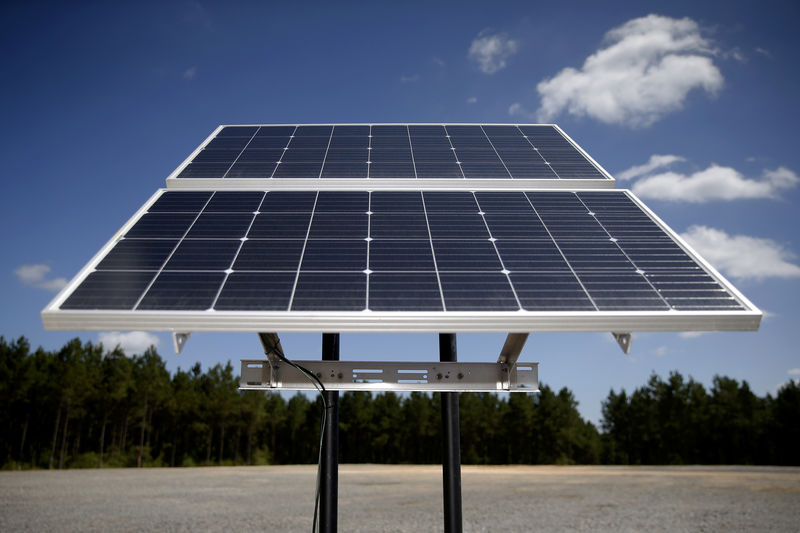(Reuters) - The U.S. solar industry on Wednesday kicked off a lobbying push aimed at convincing Congress to extend a generous tax credit for solar energy systems that is set to begin phasing out next year.
In a letter sent to congressional lawmakers and signed by more than 900 solar companies, the Solar Energy Industries Association argued that the 30% tax credit for solar energy systems should be preserved because it has helped generate $140 billion in investment. The subsidy has also created more than 200,000 jobs even though solar energy accounts for only a little more than 2% of U.S. electricity generation, the letter said.
"Solar energy can do more for the economy," it said. "Harmful public policy changes could quickly compromise future
growth."
The credit's phase-out is a major change for an industry that has relied on it to underpin growth for well over a decade. Since it was implemented in 2006, U.S. solar installations have grown more than 50% a year, according to SEIA.
That growth has sparked declines in the cost of solar energy that enable it to compete with fossil fuel-generated power, making an extension far from a sure bet.
Democratic lawmakers in both the House and Senate have advocated for an extension, but a key Republican, U.S. Senator Chuck Grassley, opposes it. The Senate Finance Committee chairman, a longtime supporter of the credit, has said he is against an extension because he promised opponents of the subsidy in 2015 - the last time it was extended - that he would not seek it again. The extension would need Republican support to pass the Senate.
If allowed to sunset, the subsidy will drop to 26% next year and will continue to step down annually until 2022, when it will settle at a permanent 10% for utility and commercial projects and disappear for residential projects.
The letter to lawmakers highlighted the sector's growth in the Midwest and Southeast, regions with many Republican-controlled states, and focused on its economic and job-creating benefits.
In a separate press release, however, SEIA linked the policy to a drive to combat climate change.
"Supporting this proven policy is the first clear victory that lawmakers can deliver to Americans on climate change," SEIA President Abigail Ross Hopper said in the statement.

The letter to Congress is the beginning of a wider lobbying push to extend the credit, SEIA said.